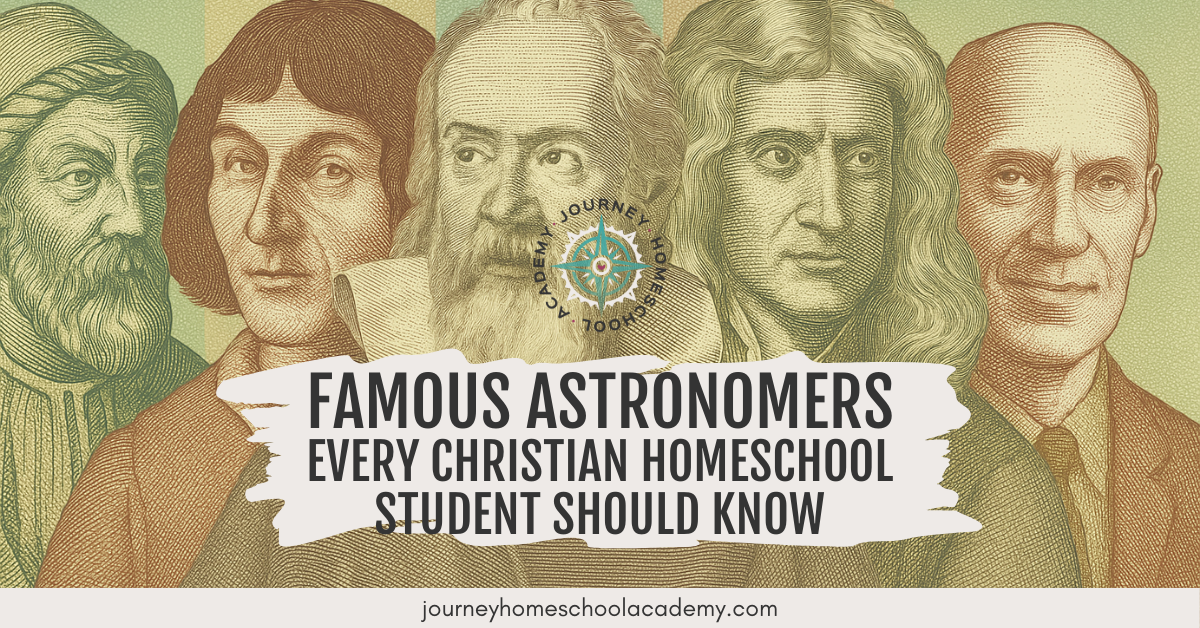When your kids step outside on a clear night and look up, they’re not just seeing twinkling dots of light—they’re peering into the same heavens that have captivated humankind for centuries.
As homeschool parents, we have the privilege of helping our children connect those bright stars with the men and women who sought to understand them. Even better, we can frame those discoveries within a distinctly Christian worldview that highlights God’s glory in creation.
In this blog, we’ll introduce you to several famous astronomers every Christian homeschool student should know. These names aren’t just about science—they’re about the incredible story of God revealing His universe to humanity.
Famous Astronomers Every Christian Homeschool Student Should Know
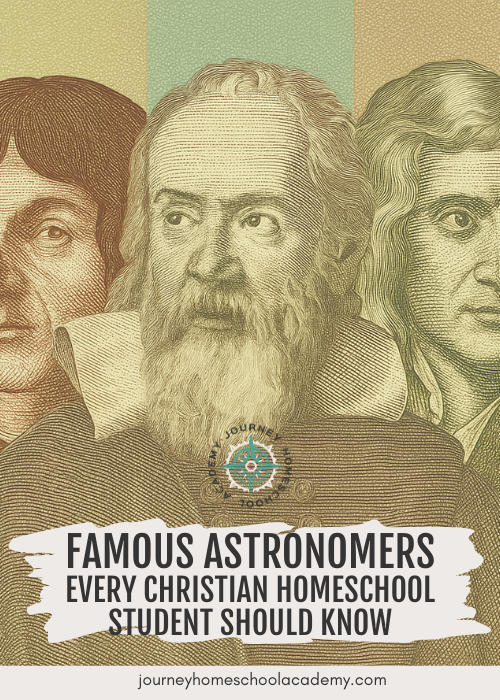
Why Learn About Astronomers in Your Homeschool?
Teaching astronomy isn’t just about memorizing constellations. When your kids learn about astronomers:
- They gain role models of curiosity, courage, and perseverance.
- They see that science and faith aren’t enemies—many astronomers were deeply religious.
- They connect history with science and understand the progression of human thought.
- They marvel at God’s creation, seeing how each discovery reflects His order and majesty.
Astronomers give us stories that combine the thrill of discovery with the wonder of worship.
Famous Astronomers Every Christian Homeschooler Should Know
Claudius Ptolemy (2nd Century AD)
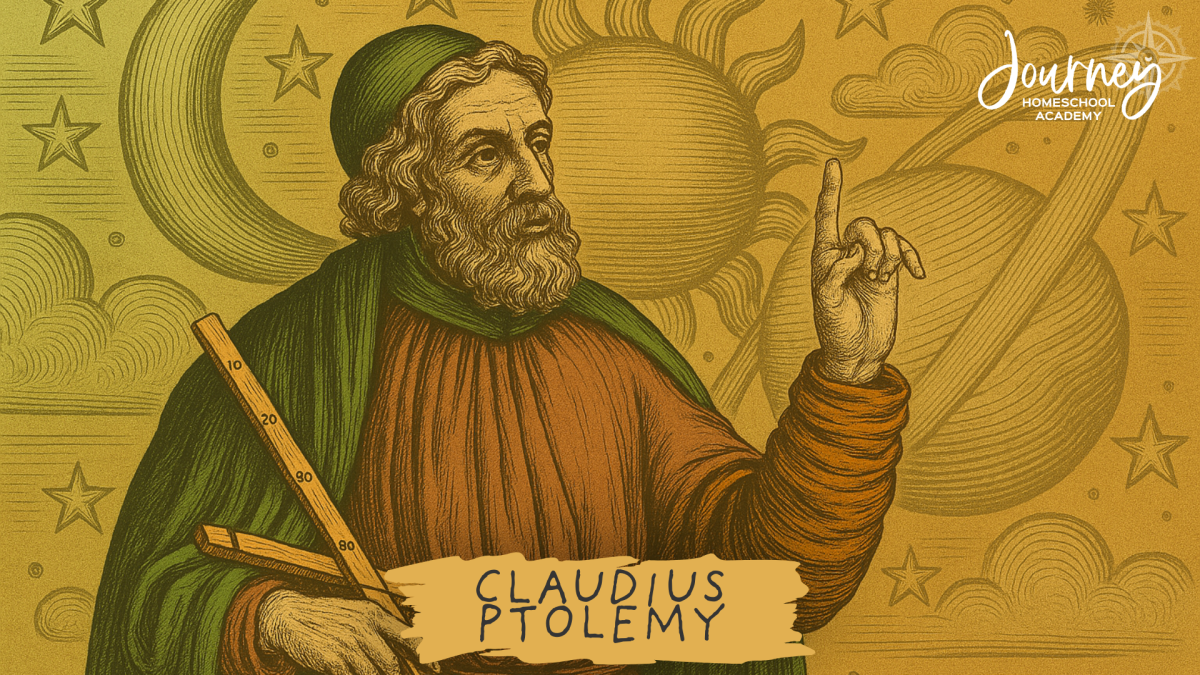
Ptolemy built a geocentric model of the universe, placing Earth at the center. For centuries, this idea shaped how people viewed the cosmos. While wrong in the details, Ptolemy reminds us how human understanding is limited compared to God’s infinite truth.
Nicolaus Copernicus (1473–1543)
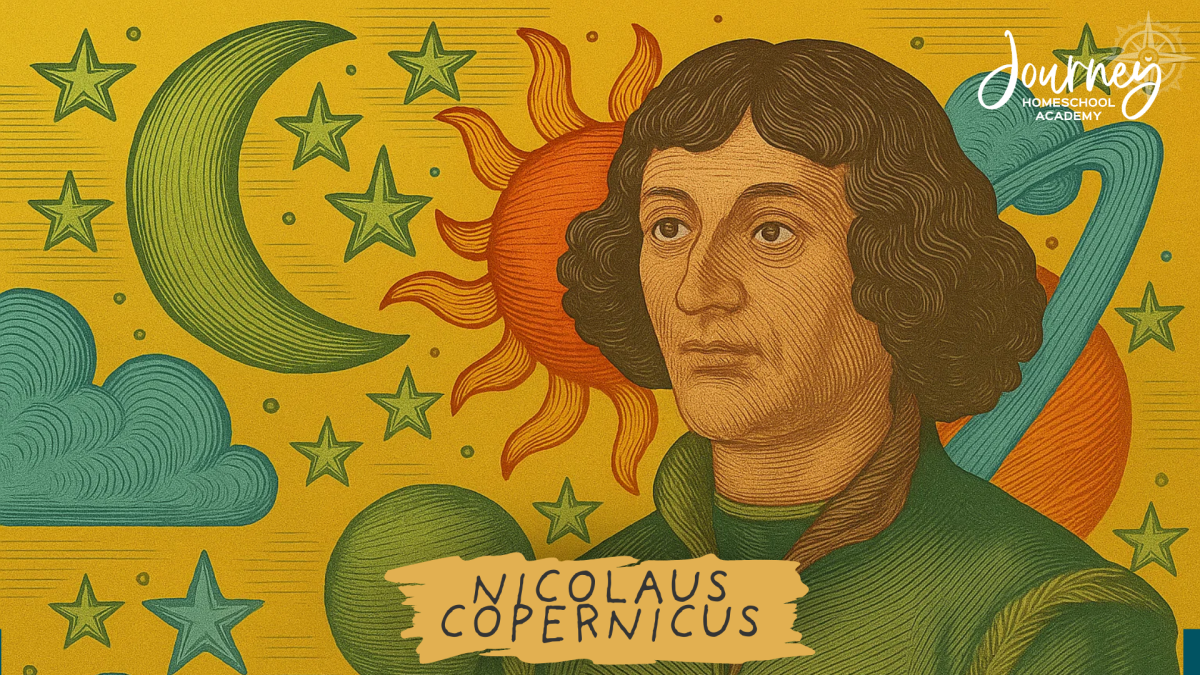
Copernicus turned the world upside down with his heliocentric model—the sun at the center. His work required humility and courage, reminding us that discovering God’s truth often means letting go of old assumptions.
Galileo Galilei (1564–1642)
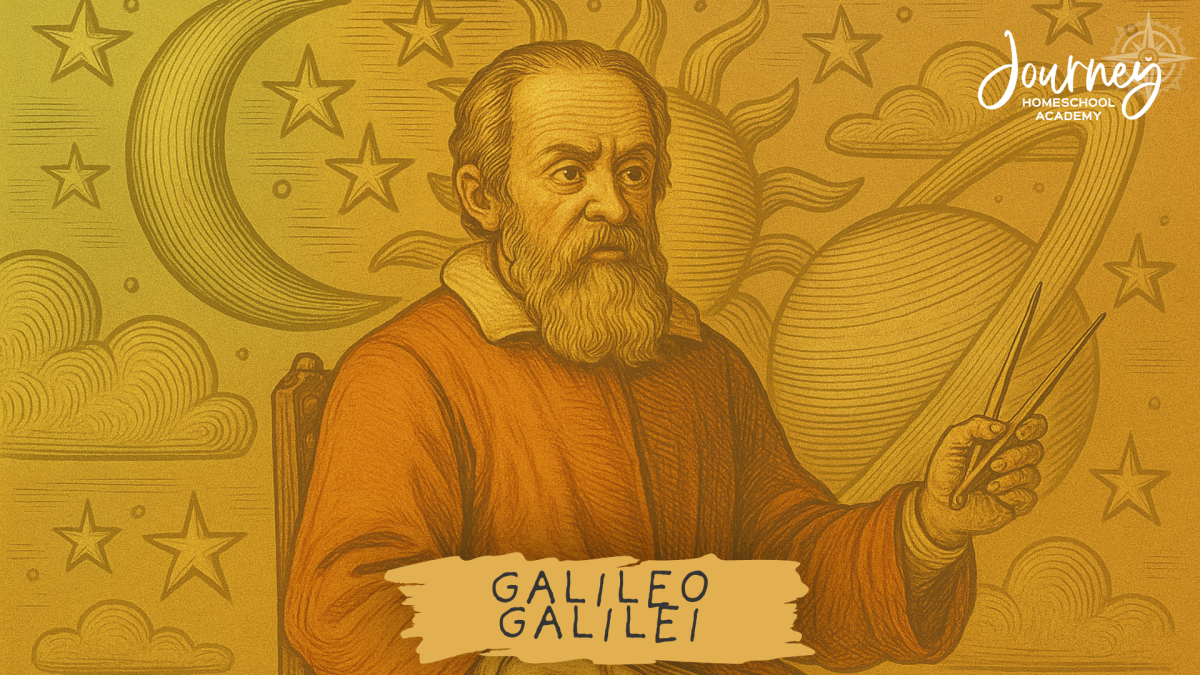
Known as the father of modern science, Galileo built a telescope and proved that planets move in ways no one had imagined. His story shows how science can challenge us, sometimes making people uncomfortable, but ultimately revealing God’s handiwork more clearly.
Johannes Kepler (1571–1630)
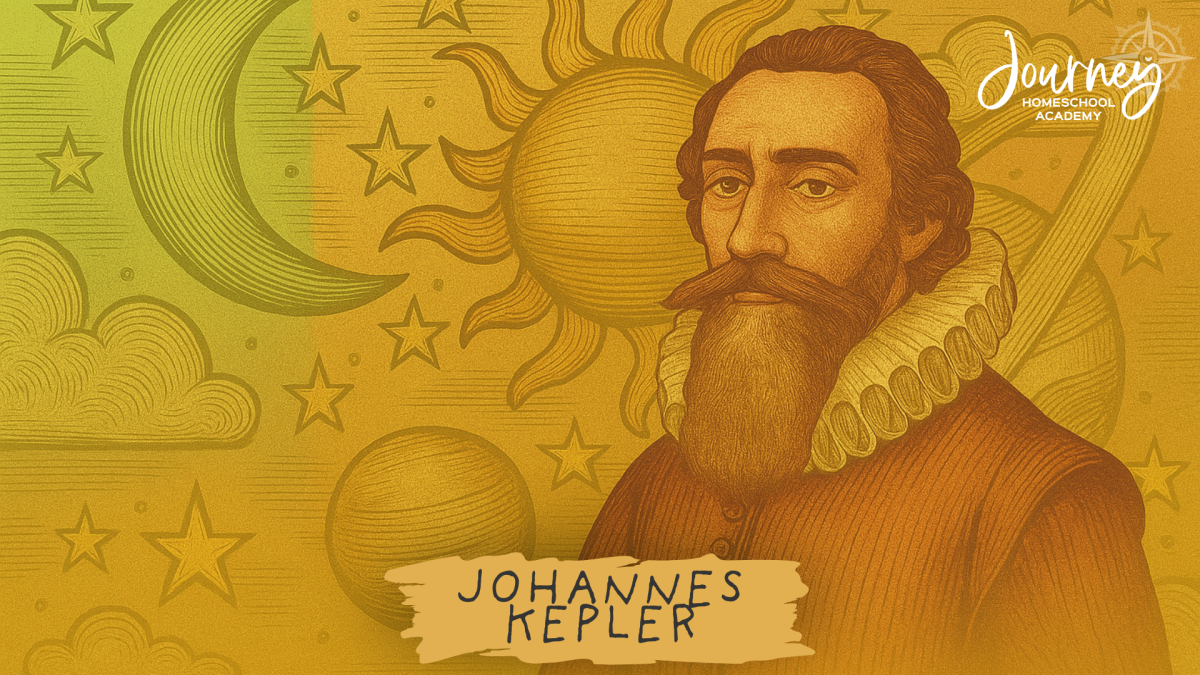
Kepler discovered the laws of planetary motion and famously described astronomy as “thinking God’s thoughts after Him.” He’s a shining example of how scientific discovery can be an act of worship.
Sir Isaac Newton (1643–1727)
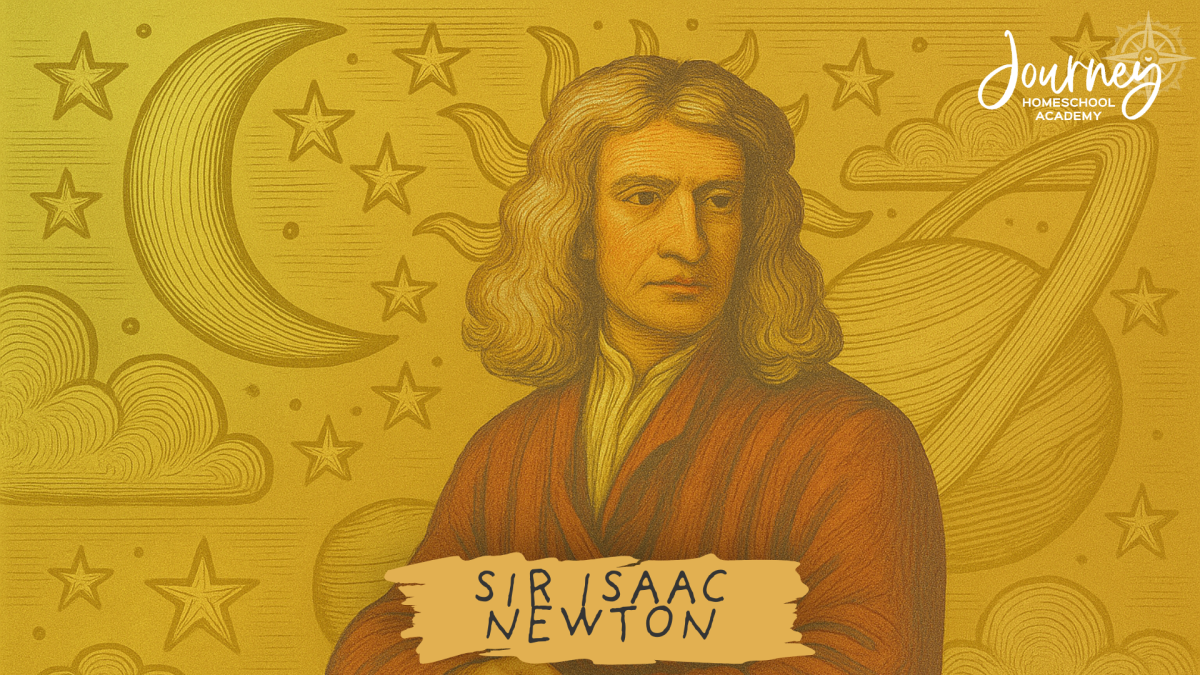
Newton’s laws of motion and gravity laid the foundation for modern science. Yet, he also wrote extensively about theology. For Newton, studying science was inseparable from glorifying the Creator.
Modern Christian Astronomers
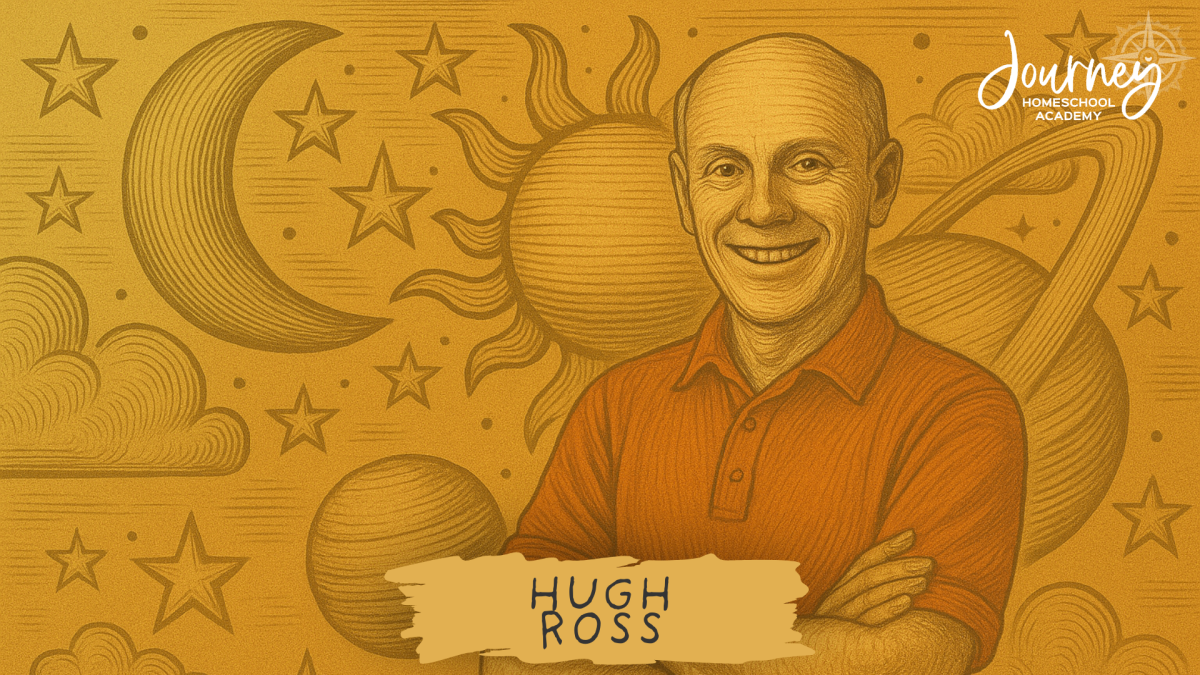
Faith and science still walk together. Figures like astrophysicist Hugh Ross continue to explore the universe while defending the faith. Your students can see that astronomy isn’t just a subject of the past—it’s a vibrant, ongoing field where Christians still shine.
How to Incorporate Astronomers into Your Homeschool Studies
You don’t have to teach this as a dry history lesson. Here are some simple ways to make these astronomers come alive:
- Mini-biographies: Read short stories about astronomers as part of your science or history curriculum.
- Living books and read-alouds: Especially for younger students, use books that capture the imagination.
- Timeline projects: Place each astronomer on a visual timeline to see how discoveries built on one another.
- Bible connections: Pair lessons with verses like Psalm 19:1 (“The heavens declare the glory of God”) or Genesis 1:14–18.
Take Astronomy Further with Journey Homeschool Academy
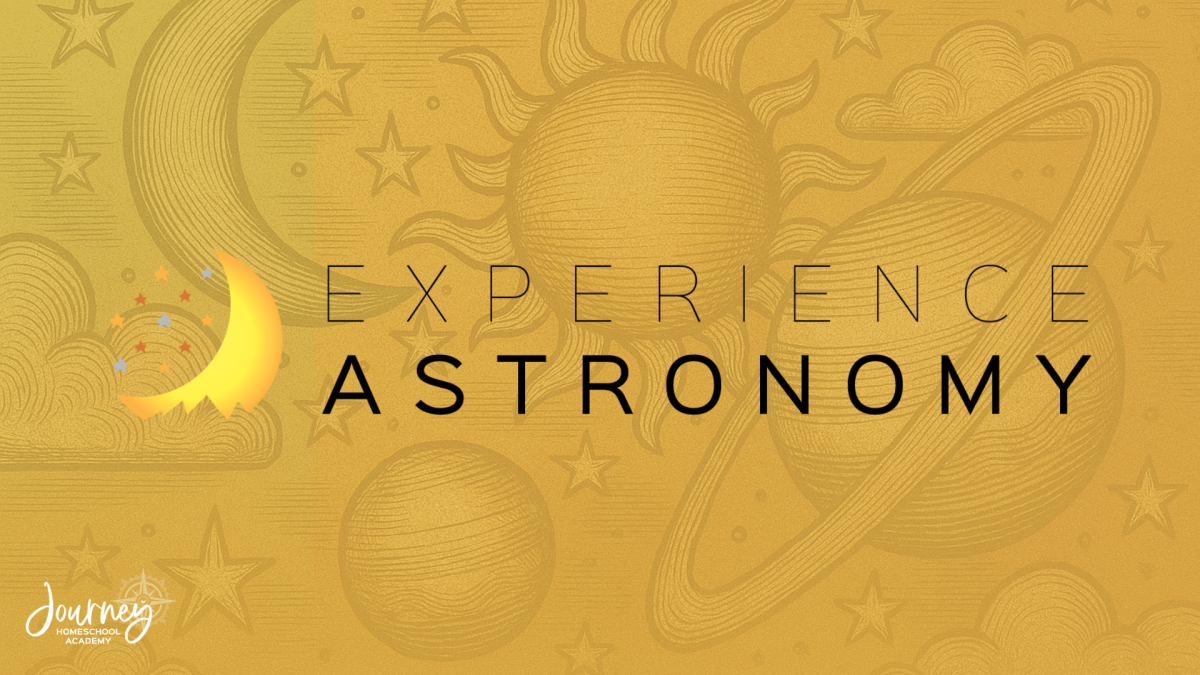
If you want to inspire your kids with the wonder of the heavens (without feeling like you need to become an astronomer yourself), Journey Homeschool Academy is here to help. Our Experience Astronomy courses make the study of the night sky engaging, hands-on, and faith-filled:
- Elementary Level: Story-driven lessons, hands-on activities, and living books that ignite curiosity. Preview a sample lesson here.
- Middle & High School Levels: Stargazing assignments, rich historical context, labs, and worldview integration. Preview a sample lesson here.
With video-based teaching, quizzes, and ready-to-use activities, your students can dive deep into astronomy while you breathe a little easier knowing the heavy lifting is already done.
Conclusion
When we study astronomy, we’re not just learning about planets and stars—we’re learning about the God who set them in place. Introducing your kids to famous astronomers helps them see science not as something separate from faith, but as a powerful way of worshiping the Creator.
And if you want to make astronomy come alive in your homeschool, don’t miss our Experience Astronomy courses. They’ll give your students both the knowledge and the awe to look up at the heavens and say, “The heavens declare the glory of God.”
